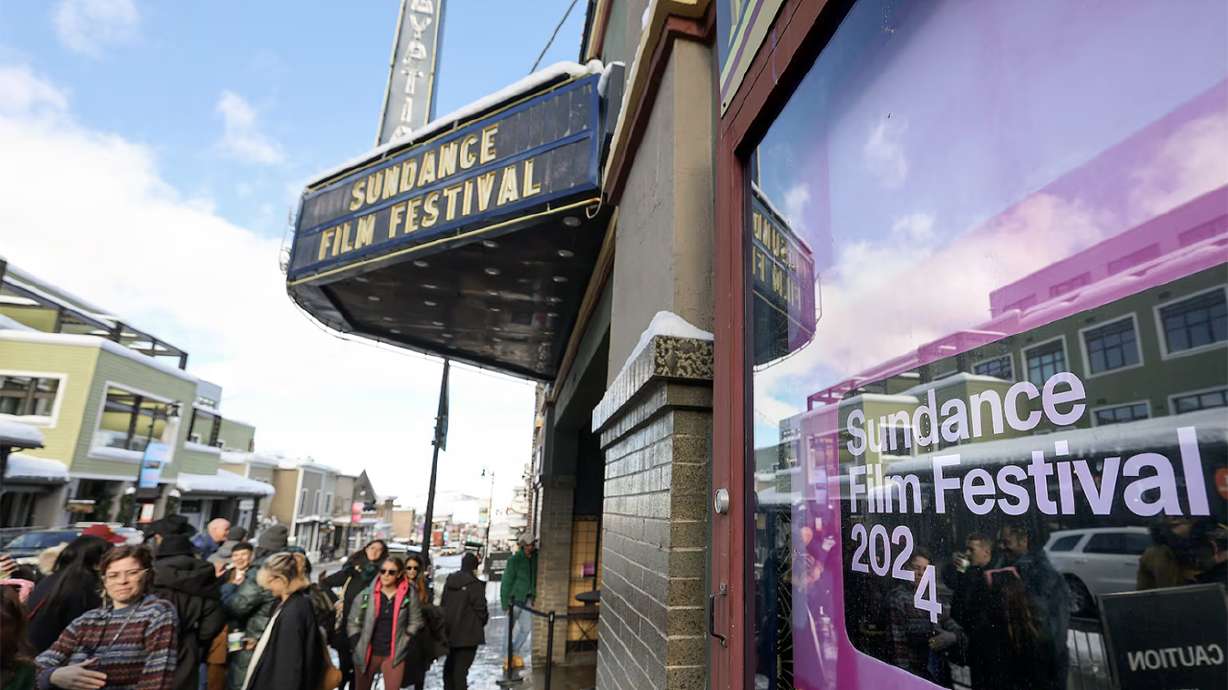Estimated read time: 5-6 minutes
- Sundance Film Festival is relocating from Utah to Boulder, Colorado, after 40 years.
- The move will cost Utah $132 million in GDP and 1,730 jobs annually.
- Colorado anticipates economic benefits, offering Sundance $34 million in tax credits.
SALT LAKE CITY — After a 40-year-plus run, the vaunted Sundance Film Festival is leaving Utah, and taking millions of dollars with it.
The Sundance Institute announced Thursday that it will relocate the annual event to Boulder, Colorado, splitting away from the place where it all began. The news cuts deeply on an emotional front for local film and arts enthusiasts, but the wound is even deeper from an economic perspective.
"Boulder is an art town, tech town, mountain town, and college town," Sundance Institute CEO Amanda Kelso said in a prepared statement. "It is a place where the Festival can build and flourish. ... We can't imagine a better fit than Boulder."
Launched in 1978 as the Utah/United States Film Festival, which was first held in Salt Lake City, it eventually moved to Park City in 1981 and morphed into the Sundance Film Festival after the Sundance Institute took over.
Since that time, it's grown into a massive yearly gathering that draws Hollywood A-listers alongside up-and-coming filmmakers in a showcase of new cinema that has built a global reputation alongside an enormous economic boost for the Beehive State.
Sundance economic impacts
According to the 2024 Sundance economic impact report from Y2 Analytics, over 72,000 people attended the festival between Jan. 18 and Jan. 28, 2024, resulting in 141,212 tickets redeemed at screenings.
Over 24,000 of the attendees were visitors from out of state. Out-of-state visitors spent an estimated $106.4 million in Utah during the festival. Sundance Institute also directly contributed to the Utah economy via the costs of planning and producing the festival, according to the report.
In total, the Sundance Film Festival contributed the following to Utah's economy in 2024 per Y2's analysis:
- $132 million in gross domestic product
- 1,730 jobs for residents
- $69.7 million in wages
- $13.8 million in state and local tax revenue
According to a report from the Sundance Institute, the 2024 edition of the festival featured a smaller in-person venue footprint with less capacity to accommodate in-person attendees, resulting in an expected reduction in ticketed attendance. However, the institute said the festival had a higher sell-through rate of screenings with incredible demand for in-person attendance, reflecting "the crucial gathering point for independent storytelling."
Out-of-state Sundance attendees in 2024 spent an average $4,411 during their stays in Utah, a total of $735 per day. Utahns, primarily because they seldom need lodging, spent less but still purchased $437 in goods, services and recreation, or $246 per day, according to Y2's report.
The Utah/Sundance connection
During one of his monthly PBS Utah news conferences last fall, Utah Gov. Spencer Cox noted Sundance's long-running ties with the state along with its level of economic impact. The governor, at the time, also expressed his optimism that Park City would continue its hosting duties.
"Sundance and Utah are connected in ways that would devastate both of us, I think, to have to have that separation happen," Cox said. "I think it would hurt Sundance to leave this state and to leave the place where their identity is so much a part of the fabric of our state. And so I'm optimistic. I'm very hopeful."
Cox shared his concerns about the amount of explicit content in Sundance movies but noted hosting a film festival with mature content is a small price to pay for the "off the charts" economic returns provided by the festival.

"Those films are going to happen, whether they happen here or somewhere else," Cox said. He added that the film festival is an "economic driver" in Utah.
"We pay less in taxes as a state because we have so much tourism in the state, because other people come here and spend their dollars," Cox said last September. "They spend nights in hotel rooms, they rent cars, they buy food, and that helps to keep our taxes low. And that's the trade-off that the Legislature looks at."
Last April, the Sundance Institute announced it had opened a Request for Proposal as part of a process to explore locations across the country to host the film festival. The festival's contract with Park City was up for renewal in 2027, which provided the institute with the opportunity to consider new host cities.
Institute leaders narrowed the field in September 2024 to Park City/Salt Lake City; Boulder, Colorado; and Cincinnati, Ohio.
Utah's loss, Colorado's gain
Utah put together a financial package that would have nearly doubled the annual in-kind and cash public funding for the festival over the next 10 years.
In-kind funding would have jumped from $3.7 million to $6.6 million annually, while proposed cash amounts would have risen from $2.7 million to $5.5 million every year. The proposed increase would have been covered by a mix of public sources, including state funding and various local tax revenues split between Salt Lake and Summit counties.
Meanwhile, a bill is working its way through the Colorado General Assembly that would provide Sundance $34 million in tax credits for 10 years starting in 2027.
The economic impact of the festival is not lost on Colorado officials. The Colorado Office of Economic Development and International Trade expects a significant boost.
"Here in Colorado we also celebrate the arts and film industry as a key economic driver, job creator and important contributor to our thriving culture," Gov. Jared Polis said in a statement. "Now, with the addition of the iconic Sundance Film Festival, we can expect even more jobs, a huge benefit for our small businesses including stores and restaurants, and to help the festival achieve even greater success."










